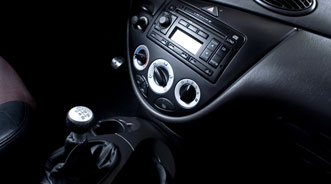Study: Drivers Prefer to ‘Plug It In’ Over Built-In Technology

By subscribing, you agree to receive communications from Auto Remarketing and our partners in accordance with our Privacy Policy. We may share your information with select partners and sponsors who may contact you about their products and services. You may unsubscribe at any time.
NEW YORK –
Though OEMs continue to look for ways to integrate technology directly into the makeup of new vehicles, consumers may still be looking to “plug in” their devices, putting less emphasis on built-in applications.
According to the 2012 Harris Poll AutoTECHCAST study released by marketing research firm Harris Interactive, flexibility to "plug in" current consumer electronics wins out over integration.
For example, the study — which takes an in-depth look at U.S. consumer research on over 60 advanced automotive technologies covering entertainment, exterior and interior comfort and convenience, intelligent sensing, lighting, powertrain and alternative fuels, safety, and telematics — concluded that consumers are more interested in having options for docking smartphones, rather than built-in applications.
And as car manufacturers, as well as dealers, look to include the technology consumers are willing to pay for in their new and pre-owned vehicles, this news may be of particular interest.
The study revealed that before exposure to a price, new-car buyers prefer the option of smart phone docking over built-in applications, with 24 percent stating they would consider the option of docking their smartphone in their vehicle compared to just 14 percent who would consider having applications built-in.
Commenting on this trend, Mike Chadsey, vice president, automotive solutions consultant at Harris Interactive, said, "Consumers are indicating that they want their automotive technology to help improve safety while giving them more flexibility, even if it costs a little more.
Subscribe to Auto Remarketing to stay informed and stay ahead.
By subscribing, you agree to receive communications from Auto Remarketing and our partners in accordance with our Privacy Policy. We may share your information with select partners and sponsors who may contact you about their products and services. You may unsubscribe at any time.
"Personalization is the future of the connected car. Drivers want to use technology they already know and love in their vehicles. By integrating technologies they already own, it also eliminates some of the technology usage issues plaguing the industry today,” he continued, stressing that consumers should be able to “personalize” their technology preferences in a new vehicle.
That said, the study found there is one category where consumers continue to show a growing interest in and prefer a built-in system: navigation.
“Among consumers that are likely to consider a navigation option, a majority (62 percent) prefer a built-in system, while 19 percent prefer a portable device and 11 percent prefer to use a smartphone application,” the company reported.
Which Applications Are Consumers Using on the Road?
But for those car buyers that desire dockings features, the study also highlighted which applications those consumers are using on these mobile devices, giving OEMs and dealers a glimpse into how consumers are uitilizing technology while in the vehicle.
New-car buyers that desire docking features named the following smartphone applications as the ones they have on their device: Google Maps (66 percent), Google Search (65 percent) and Facebook (64 percent), officials shared.
Moreover, Internet radio provider Pandora (41 percent) and Twitter (32 percent) were also prominent.
For consumers that prefer their applications to be integrated within their vehicle, Google Maps (82 percent) and Google Search (65 percent) topped the list again, while Pandora (45 percent) and social networking apps including Facebook (35 percent) and Twitter (17 percent) were less preferred.
Highlighting the methodology behind the study, the company explained the 2012 Harris Poll AutoTECHCAST study was conducted online within the United States by Harris Interactive between April 9, 2011–April 30, 2012 among 11,925 U.S. adults ages 18 and over and who own or lease a vehicle model year 2007 or newer, have a valid driver’s license, intend to purchase or lease a new (not used) vehicle and are at least 50 percent involved in the decision to buy their next household vehicle.
Results were weighted as needed for age, gender, education, region and income, and to properly represent U.S. vehicle segment owners. Propensity score weighting also was used to adjust for respondents’ propensity to be online, they added.
For more findings from the study, see here.


